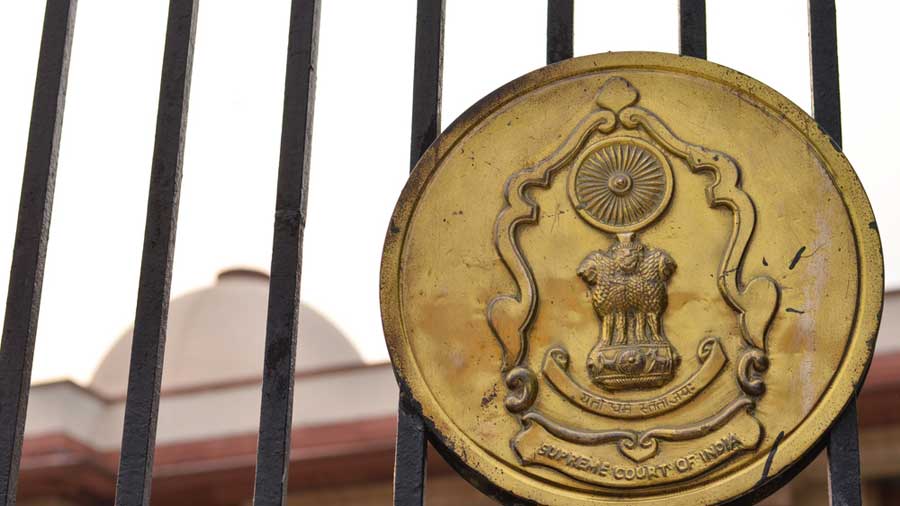The Delhi Police has moved at high speed to challenge in the Supreme Court a Delhi High Court order granting bail to three students –Natasha Narwal, Devangana Kalita and Asif Iqbal Tanha -- who were arrested after the Delhi riots in early 2020 under the tough anti-terror law.
Calling the High Court’s judgement “perverse,” the Delhi Police said that: “We are proceeding with the filing of a special leave petition (to appeal) before the honourable Supreme Court.”
Lawyer B. V. Balram Das, acting for the police, added the fact that “the High Court has commented on facts outside the jurisdiction of the bail plea... will impact every National Investigation Agency (NIA) investigation under the UAPA (Unlawful Activities (Prevention) Act).” according to ANI news agency quoting what it said were police officials familiar with the case.

Asif Iqbal Tanha, Devangana Kalita, Natasha Narwal move Delhi HC seeking forthwith release from jail after being granted bail. HC asks trial court to proceed with issue of release of three accused from jail with promptitude and expedition.
Meanwhile, the students, who have already spent over a year in jail, surviving two Covid-19 waves, were obliged to spend more time in jail. A sessions court judge held off Wednesday on ordering the immediate release of the students on bail after Delhi police demanded three days to verify the addresses of the accused and the sureties posted by them.
The Delhi High Court ordered on Tuesday in separate rulings taking up the allegations against each of the accused that the three should be immediately released on bail and made stinging remarks about their arrest under UAPA.
The High Court said “... that in its anxiety to suppress dissent and in the morbid fear that matters may get out of hand, the state has blurred the line between the constitutionally guaranteed ‘right to protest” and “terrorist activity.” The two-man bench went on to add that: “If such blurring gains traction, democracy would be in peril.”
In response to the High Court ruling, Das said in commenting that the case against the accused was “not borne from the evidence or charge sheet,” the High Court had gone beyond “its limited jurisdiction of dealing with the bail applications of the accused.”
Justices Siddarth Mridul and Anup Jairam Bhambhani noted in their ruling that the allegations against the three did not “prima facie” constitution violations of the UAPA. As a result, the sections of the UAPA against granting the accused bail did not apply to their cases, the judges said. The three were thus entitled to be granted bail under the usual provisions of the Code of Criminal Procedure. “... we are of the view that no offence under sections 15, 17 or 18 UAPA is made out against the appellant on a prima facie appreciation of the subject charge-sheet, the High Court said Tuesday.
“Restrictions for grant of bail under section 43D(5) UAPA do not apply; and the court may therefore fall back upon the usual and ordinary considerations for bail” under the criminal code, the bench said.
Former Supreme Court judge Deepak Gupta hailed Tuesday’s High Court ruling, telling Bar & Bench that it stood as “a beacon of hope for people who believe in liberties, especially civil liberties of the citizens,” “This judgement lays out the law which is crystal clear,” says senior advocate Dushyant Dave, a former president of the Supreme Court Bar Association.
The high court judges had said that “frivolously” laying charges under the UAPA “would undermine the intent and purpose of the Parliament in enacting a law that is meant to address threats to the very existence of our Nation.”
Former Supreme Court justice Gupta said that the high court ruling was important in another context also. “These are cases in which the UAPA is invoked where there is a presumption that bail cannot be granted unless the court comes to the conclusion that a prima facie case is made out that bail has to be granted.”
For Narwal, the judgement came too late to see her father who died of Covid-19. She had been unable to speak to him before his death but was granted interim bail for three weeks after he died.
“The news of the bail order hit me both with relief and sorrow. In normal circumstances, it would have been a celebration, but I couldn't help but think every other minute how happy our father would have been to see his daughter," Narwal’s brother Aakash told PTI. “I am very sure that his last thoughts would have been of Natasha.”










